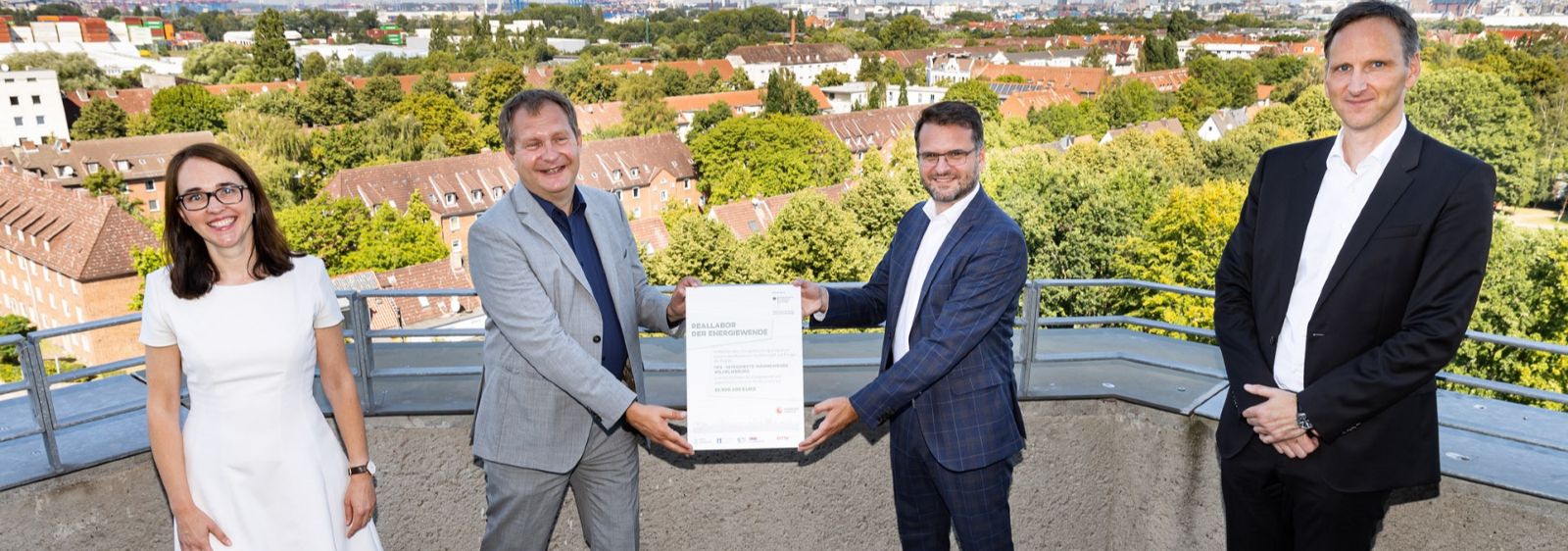
Starting signal for the living lab for the energy transition
Hamburg: New living lab IW³ provides climate-friendly heat
With its concept of the integrated household heating transition, IW³ is pursuing the goal of intelligently coupling different renewable energy producers and stores with consumers so that energy is always available when it is needed. State Secretary Andreas Feicht: “Following last week’s launch of WESTKÜSTE 100, the first hydrogen living lab on the coast of Schleswig-Holstein, today Hamburg is demonstrating through IW³ how a living lab can work in an urban environment. IW³, with its concept of an integrated household heating transition, will become a beacon for the energy and heating transition in an urban setting. The concepts trialled here can be put in practice across Germany.”
On top of the existing producers, such as wind power and solar thermal energy, the planned centrepiece of the recently launched living lab is a geothermal plant. This plant will collect geothermal energy from a depth of around 3,500 m and feed it into the local heating network. In future, seasonal excess heat will also be stored temporarily in rock caverns close to the surface.
Heating, electricity, and mobility are virtually linked
A virtual power plant connects the different renewable energy producers via a multi-system technology platform and couples the heating, electricity, and mobility sectors to create an intelligent and efficient energy supply in the urban district. What’s more, the participating partners are developing an open heating market place for IW³, through which energy from different sources and providers can be traded in an automated and transparent process.
Solutions to serve as blueprints for other cities
A lot of fossil fuel energy is still used for urban heat supplies in Germany. The new technologies and methods used in Wilhelmsburg, a neighbourhood expected to have almost 70,000 residents in future, are therefore suitable as a blueprint for districts and cities all over Germany. The electricity provider Hamburg Energie is coordinating the project.
IW³ is one of the 20 winners of the Federal Ministry for Economic Affairs and Energy’s “living lab for the energy transition” competition, which were announced in July 2019 by Federal Minister Peter Altmaier. As the funding format for the Federal Government’s 7th Energy Research Programme, the living labs are used to implement innovation projects on an industrial scale. The goal is to support the introduction of innovative technologies and methods for the energy transition on the market.

